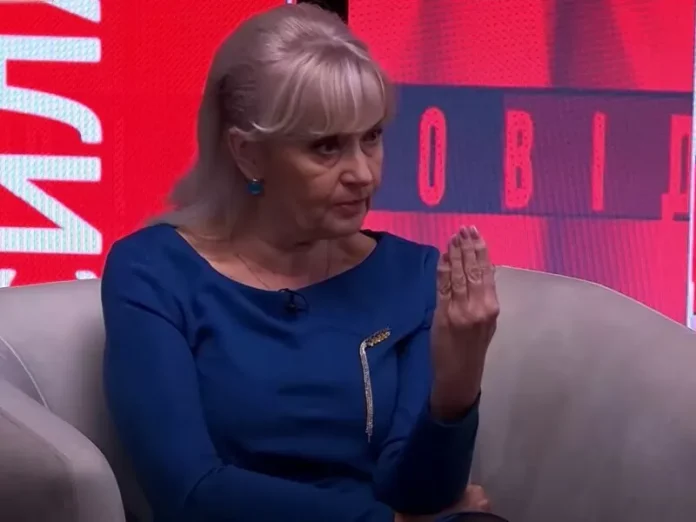The former member of the Ukrainian Parliament, linguist and professor Irina Farion has been at the center of controversy in recent years. Known for her strong nationalist views and outspoken criticism of Russian influence in Ukraine, Farion was fired from her position at Lviv Polytechnic National University in 2017 after a series of scandals.
However, on January 25th, Farion made a statement on the TRK RAI television channel in the Ivano-Frankivsk region that sparked even more controversy. She claimed that the city of Lviv has become a «city of saboteurs» due to the influx of Russian-speaking immigrants.
According to Farion, the Russian-speaking population in Lviv has been steadily increasing in recent years, leading to a shift in the city’s cultural and linguistic landscape. She believes that this influx is part of a larger plan by Russia to destabilize Ukraine from within.
Farion’s comments have caused a stir among both supporters and critics. Some have accused her of promoting hate and discrimination towards Russian-speaking citizens, while others have praised her for speaking out against what they see as a threat to the Ukrainian language and culture.
However, it is important to note that while Farion’s claims may be controversial, they are not entirely unfounded. The Ukrainian government has been actively promoting the use of Ukrainian language and culture, even passing a law in 2019 that makes the use of Ukrainian language mandatory in most public spheres.
But the issue of language and identity is a complex one in Ukraine. The country has a long history of being under various foreign rule, including Russian and Soviet influence. As a result, there are many different ethnic and linguistic groups within the country, each with their own unique cultural identities.
In recent years, the conflict between Ukraine and Russia has only added fuel to the fire. Many Ukrainians see the promotion of Ukrainian language and culture as a way to assert their independence and sovereignty from Russian influence. However, this has also led to tensions and animosity towards Russian-speaking citizens.
One of the main concerns raised by Farion and others is the fear that the Russian-speaking population in Lviv will eventually outnumber the Ukrainian-speaking majority, leading to a loss of Ukrainian identity in the city. This fear is not unfounded, as Russia has a history of using language and cultural influence as a means of exerting control over neighboring countries.
But it is important to remember that not all Russian-speaking citizens in Lviv are supporters or agents of the Russian government. Many have lived in Ukraine for generations and have no intention of promoting Russian interests.
In fact, the majority of Russian-speaking citizens in Ukraine are loyal to their country and its culture, while also respecting and embracing Ukrainian culture and language. It is unfair to paint them all with the same brush and label them as «saboteurs.»
Furthermore, the influx of Russian-speaking immigrants to Lviv is not solely due to Russian interference. Many come to the city for economic reasons, seeking better job opportunities and a higher standard of living. They should not be blamed for trying to improve their lives and contribute to the development of the city.
In the end, it is important to find a balance between promoting Ukrainian language and culture and respecting the rights and identities of all citizens living in Ukraine. This can only be achieved through open dialogue and understanding, rather than divisive statements and discrimination.
Lviv may be a city of many languages and cultures, but it is also a city of diversity and tolerance. It is what makes it a unique and vibrant place to live and visit. Let us embrace this diversity and work towards a united and prosperous future for all citizens of Lviv, regardless of their language or background.

